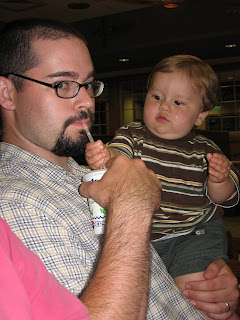Several years ago I read Michael Denton's excellent book Evolution: A Theory In Crisis. Since then I've been fascinated by the origins debate that is taking place in our lifetime. A few days ago a close friend of mine shared with me a 'letter to the editor' that he wrot e to Scientific American in response to a recent article addressing science and faith. Julian makes some very interesting points so I'm sharing his letter with Life Hound readers .....
e to Scientific American in response to a recent article addressing science and faith. Julian makes some very interesting points so I'm sharing his letter with Life Hound readers ..... From: Julian Macri
Sent: Saturday, July 21, 2007 12:06 AM
To: The editors of Scientific American
Subject: Letter to the Editor
Regarding the debate in “Should Science Speak to Faith?”, I must say I was very disappointed in Professor Krauss’s condescending attitude toward people of faith. His approach will only harden people’s feelings, won’t advance the debate in a positive direction, and will only further make it appear as if science and faith cannot co-exist. As a Christian and a physics graduate of MIT, I believe I speak for many when I say that science and religion can co-exist and, in fact, complement one another. As I attempt to keep up with the latest discoveries and theories in cosmology and physics, my faith has actually increased because it opens the door to possibly explaining some of the things told in the Bible. How can there be this invisible place called Heaven? Scientific theory is pretty convincing about the existence of more that 3 dimensions of space so perhaps Heaven  exists in these other dimensions. What does it mean when the Bible says that we are from ashes and dust? Some evolution theories indicate that life may very well have arisen from clay and that the heavier elements necessary for life may have come from the ashes of supernovas. How is it that God create the Earth in 7 days and that God can see the future? Einstein pretty much established that time is relative and attempted to even argue that time itself may not even exist!
exists in these other dimensions. What does it mean when the Bible says that we are from ashes and dust? Some evolution theories indicate that life may very well have arisen from clay and that the heavier elements necessary for life may have come from the ashes of supernovas. How is it that God create the Earth in 7 days and that God can see the future? Einstein pretty much established that time is relative and attempted to even argue that time itself may not even exist!
Both science and religion are trying to achieve the same thing and that is to find “the truth”. While science attempts to do this by observation, religion does it via revelation. What is observed or revealed can be clouded by interpretation (or misinterpretation) and that, I believe, is where the difficulties arise. We must all be open-minded about this debate. We must learn to respect one another’s positions and beliefs. Only then, together, can we hope to understand that observation and revelation, science and faith, can both support one another.
Julian Macri
Charlotte, NC
luvmusic@alum.mit.edu
 I don't get many newsletters in the mail but I did have two arrive on the same day this past week that both made reference to the West's struggle with Islam.
I don't get many newsletters in the mail but I did have two arrive on the same day this past week that both made reference to the West's struggle with Islam. 























